Choosing a Saltwater Aquarium Filtration System
Updated on 05/26/24
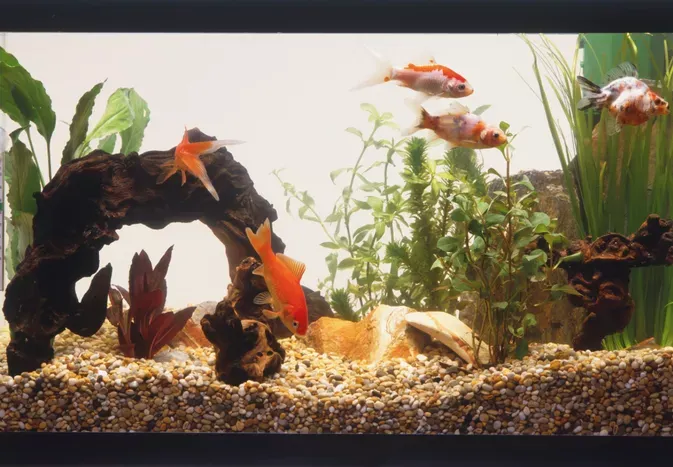
Navigating the Maze of Saltwater Aquarium Filtration Systems: A Comprehensive Guide to Clarity and Serenity
The allure of a saltwater aquarium lies in its captivating underwater world, brimming with vibrant coral, exotic fish, and an array of marine life. At the heart of this thriving ecosystem lies the filtration system, the unsung hero that ensures crystal-clear water and a healthy environment for your aquatic inhabitants. Selecting the right filtration system is paramount, and this comprehensive guide will empower you with the knowledge to make an informed decision.
Delving into the World of Filtration Systems
Like the circulatory system of a living organism, the filtration system is the lifeblood of your saltwater aquarium. It tirelessly removes impurities, ensures water clarity, and maintains optimal water parameters for your marine ecosystem to flourish. Various filtration systems exist, each with unique mechanisms and strengths. Understanding these systems will help you tailor a filtration solution that meets your aquarium's specific needs.
1. Mechanical Filtration: Capturing the Obvious
Mechanical filters act as the first line of defense against visible debris and suspended particles. These systems employ filter floss, sponges, or micron bags to trap larger contaminants, preventing them from clogging biological and chemical filtration media. Regular cleaning and replacement of mechanical filter media are crucial to maintain their efficiency.
Example: A canister filter equipped with a combination of filter floss and foam cartridges provides effective mechanical filtration, capturing debris while ensuring adequate water flow.
2. Biological Filtration: The Power of Microbes
Biological filtration relies on beneficial bacteria to break down dissolved organic matter, ammonia, and nitrites into less harmful substances. These bacteria thrive in porous media such as live rock, filter media, or biological balls. Biological filters provide long-term water quality stability, as the bacteria establish a self-sustaining ecosystem within the aquarium.
Example: A fluidized media reactor packed with biomedia offers a compact and efficient solution for biological filtration. The tumbling motion of the media ensures maximum surface area for bacteria colonization.
3. Chemical Filtration: Removing the Unseen
Chemical filtration utilizes adsorbent media such as activated carbon, resins, or zeolites to remove dissolved organic compounds, heavy metals, and other impurities. These media provide additional polishing of the water, enhancing clarity and removing odors. Chemical filtration media have a finite capacity and require periodic replacement.
Example: A carbon filter cartridge can be incorporated into a canister filter or hung separately. It effectively adsorbs organic compounds, improving water clarity and reducing odors.
4. Ultraviolet (UV) Sterilization: Disrupting Pathogens
UV sterilizers emit ultraviolet radiation that disrupts the DNA of bacteria and viruses, effectively reducing their population in the aquarium. UV sterilization can be a valuable addition to the filtration system, especially in densely populated aquariums or those prone to disease outbreaks.
Example: A UV sterilizer can be installed in-line with the filtration system or as a standalone unit. Regular maintenance and bulb replacement are necessary for optimal performance.
Choosing the Right System for Your Aquarium
The choice of filtration system depends on several factors, including the size of your aquarium, the type of marine life you intend to keep, and your personal preferences. Consider these guidelines to select the most appropriate system:
1. Aquarium Size: The capacity of the filtration system should correspond to the volume of your aquarium. A larger aquarium requires a higher flow rate and more filter media to handle the increased biological load.
2. Livestock: Different types of marine life have varying filtration needs. Fish-only aquariums may require less filtration than those with live corals or invertebrates, which generate more organic waste.
3. Personal Preferences: Some hobbyists prefer canister filters for their versatility and ease of maintenance, while others favor sump systems for their increased capacity and flexibility. Consider your lifestyle and preferences when making a choice.
4. Budget: Filtration systems vary in cost, depending on their size, features, and brand. Determine your budget and research different options to find the best value for your money.
5. Maintenance: Regular maintenance is essential for all filtration systems. Determine the ease of cleaning, media replacement, and overall maintenance before making a decision.
Additional Tips for Filtration Success
* Overfiltration is better than underfiltration. Choose a filtration system with a higher flow rate and media capacity than the minimum recommended for your aquarium size.
* Maintain regular cleaning and maintenance. Follow the manufacturer's instructions for cleaning and replacing filter media to ensure optimal performance.
* Monitor water parameters regularly. Use test kits to monitor ammonia, nitrite, nitrate, and pH levels to ensure water quality is within acceptable ranges.
* Quarantine new additions. Prevent the introduction of diseases and parasites by quarantining new fish and invertebrates before adding them to the main display tank.
* Consider redundancy. For larger or critical aquariums, consider using multiple filtration systems to provide backup in case of failure.
Conclusion
Choosing the right saltwater aquarium filtration system is a crucial step in creating a thriving underwater environment for your marine inhabitants. By understanding the different types of filtration systems and their functions, you can tailor a filtration solution that meets your aquarium's specific needs. Remember to consider the size of your aquarium, the type of livestock you intend to keep, your maintenance preferences, and your budget when making your selection. With proper maintenance and regular monitoring, you can enjoy crystal-clear water, a healthy ecosystem, and the enduring beauty of your saltwater aquarium for years to come.
Explore More Pets
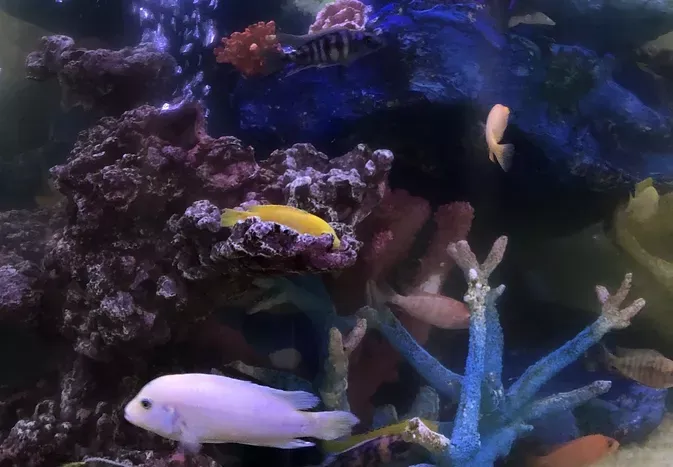
Freshwater Aquarium Filters
How to Deal With Cloudy Aquarium Water
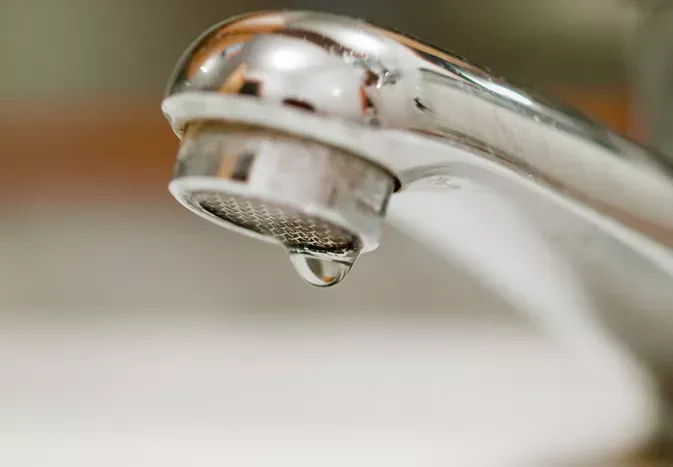
Saltwater Aquarium Filters
How Do You Remove Chloramines From Tap Water?
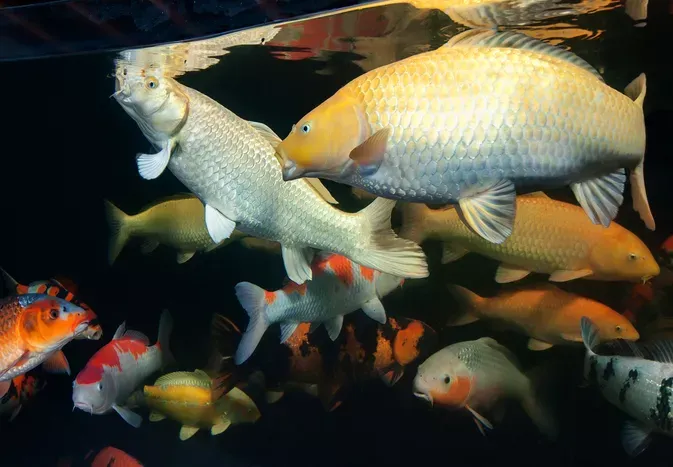
Freshwater Aquariums & Habitat
Can I Keep My Koi Fish Inside?
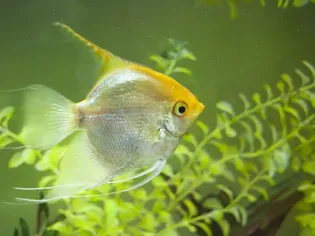
Saltwater Aquariums & Habitat
14 Best Floating Plants for Your Aquarium
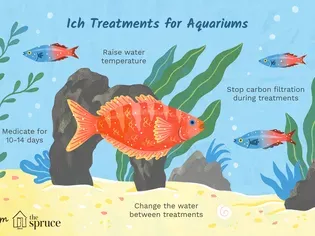
Freshwater Fish Health
How to Treat Ich on Freshwater Fish
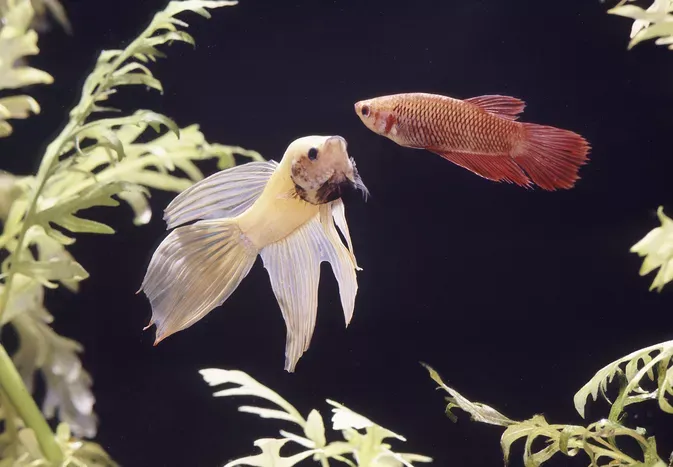
Saltwater Fish Health
Fin Rot in Aquarium Fish
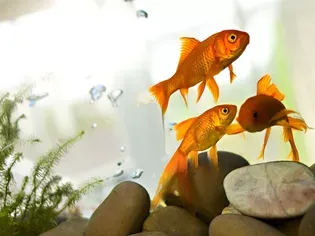
Freshwater Aquarium Filters
How to Do Aquarium Water Changes
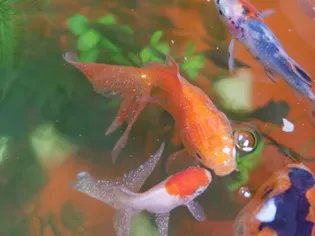
Saltwater Fish Health
How Do Fish Get Parasites?
